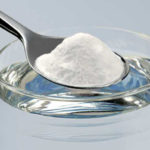Oranges are fruits that are rich in vitamins and minerals, helping to boost immunity, provide nutrients, increase energy, and recover from fatigue. The valuable vitamins in oranges such as vitamin C, B9 (folic acid) bring many benefits in improving the health of patients. Oranges are also good for cardiovascular patients, helping to prevent high blood pressure, slow down aging, and improve immunity. The benefits of oranges are so well-known that orange juice is considered a must-have drink for many children and sick people.
However, the following individuals should not consume excessive orange juice or consume it too often:

People with gastric and intestinal ulcers:
Oranges are good, but they are acidic, so people with gastric and intestinal ulcers or pancreatic inflammation should not consume too much orange juice. Organic substances increase acidity in the stomach, causing heartburn and worsening ulcer conditions. Therefore, if you crave orange juice, you should only drink diluted orange juice and drink it one hour after eating, not on an empty stomach.
People with digestive disorders:
When you have digestive disorders, diarrhea, abdominal pain, or stomach cramps, drinking a lot of orange juice can have a significant impact on your digestive system, worsening diarrhea.
People who are hungry:
When you drink orange juice on an empty stomach, the high acid content in oranges can cause dizziness, fatigue, and harm the gastric mucosa.
People who have just had surgery:
Orange juice has a relatively high content of citric acid and exists in the form of sodium citrate salt, a substance commonly used to prevent blood clotting. This substance will form complexes with Ca++ ions, impeding the thrombin and prothrombinase process – important factors involved in the blood clotting process. People who have just had surgery need to recover and stabilize their wounds before drinking orange juice to avoid the risk of bleeding.

People taking medication, especially antibiotics:
Oranges contain a compound similar to naringin that can inactivate the two enzymes CYP3A4 and OATP1A2 involved in drug transportation. Drugs will have difficulty being fully absorbed and may disrupt the chemical structure of the medication. At that time, antibiotics will no longer have antimicrobial effects, and patients are at risk of prolonged infections. Therefore, the medicine should be taken 4 hours apart or wait until the end of the treatment before drinking orange juice.
People with kidney disease, digestive and lung diseases:
According to scientific research, the elderly should not consume too many oranges, especially those with kidney disease, poor digestion, and lung diseases. This can easily lead to abdominal pain, back pain, lower back pain, and other symptoms.
People who have just consumed a lot of seafood:
Seafood can contain natural arsenic during growth. When consuming a lot of seafood with arsenic combined with fresh orange juice, dangerous precipitates can form. Therefore, do not drink fresh orange juice while eating seafood.
People who have just consumed milk:
Milk and orange juice can react with each other to create precipitates that are difficult to digest and can cause abdominal pain. This not only affects the digestion and absorption of food but can also cause bloating, abdominal pain, and diarrhea. Therefore, drink milk before or after you have eaten oranges, at least one hour apart.

The appropriate time to drink orange juice:
The best time to drink orange juice is after breakfast or lunch, and you should not drink it before going to bed because the diuretic effect of orange juice can make you lose sleep.
Do not drink orange juice before brushing your teeth: The acid in orange juice sticks to the surface of tooth enamel, and the friction of brushing can damage the tooth enamel if you frequently eat or drink orange juice before brushing your teeth.
The amount of orange juice to drink in a day is about 200-300ml of orange extract, you don’t need to drink too much. For children, they can drink half of this amount.



































